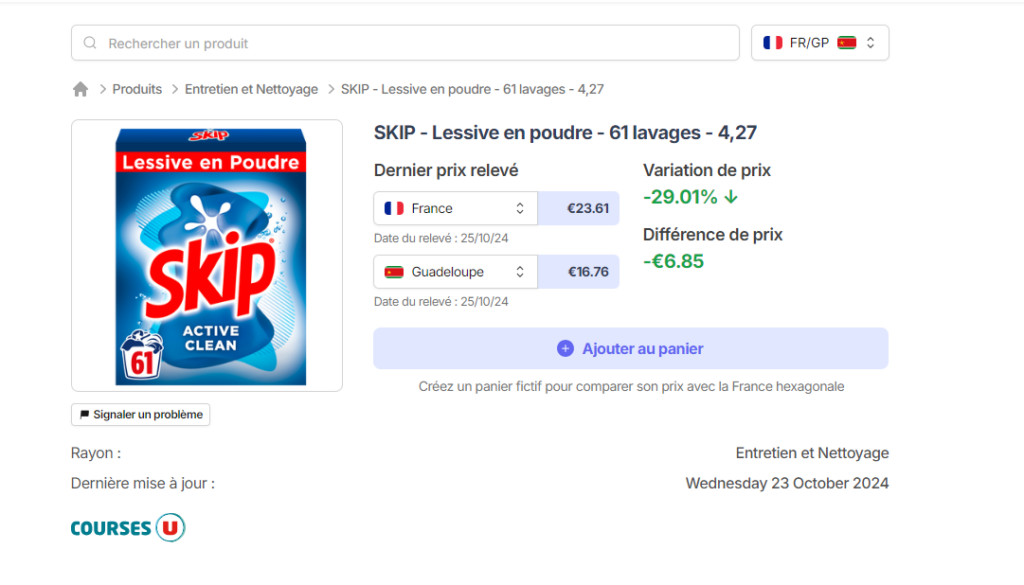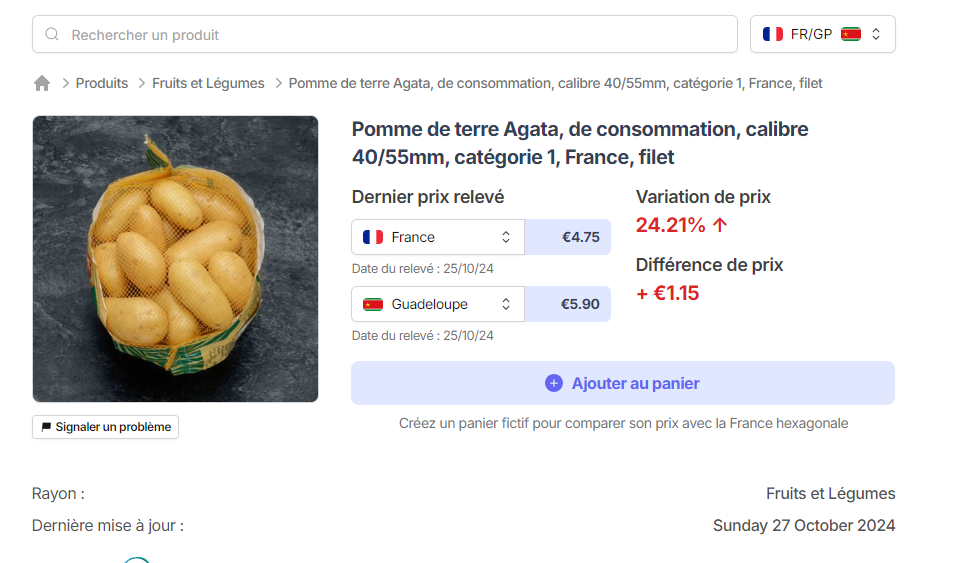In this tumultuous world, it is easy to forget the other problems facing certain parts of the globe. Today, I want to talk about the challenges facing the overseas departments, once owned by France, that are now supposed to be part of France. These departments are called Guadeloupe, Martinique, Guyana, New Caledonia, Mayotte and Reunion, Tahiti.
If you were not aware of their existence before, it is perhaps because it is a well-kept secret. France does not promote its former colonies much in the world. However, internally, the inhabitants of the overseas departments are rather well accepted in French society. I say "rather" because individuals from these territories are often perceived differently in France. However, they are the ones you often see winning medals for France. Like Teddy Rhiner who is a national of Guadeloupe. The observation
In Metropolitan France, they are sometimes considered lazy because of their island accent and the fact that they don't necessarily speak perfect French. The French are very picky about grammar and often don't like accents. I know this first-hand because I am French. As you can imagine, both of these islands were French colonies not so long ago, and the inhabitants there speak French and are considered an integral part of the French territories.
They are even considered part of Europe, meaning that when you land there, you are in France. That is what you might think. Please know that I love these islands, since I am from there, and I would never describe the people who live there in a negative way. However, these islands are currently facing some problems.
You all enjoyed the French government-funded Olympics in cities around the world, and I'm sure you've heard about the millions spent in Paris to make the Seine River swimmable. Well, just know that Guadeloupe and Martinique for example still have power outages, and the water is often undrinkable due to banana farming (more on that another time). I mention Guadeloupe and Martinique because those are the islands I know, having lived in Guadeloupe and having family in Martinique.
So today I want to talk about the daily lives of the people who live there. In the US and mainland France, when you go shopping, you expect to pay for your items despite the current inflation, so you sulk. Now imagine for the people living on these islands, prices are sometimes two to three times higher than what you would pay on the mainland. Why, you ask? Because of monopolies.
Now, for the Americans reading this, let me help you visualize this: think of those movies where the bad guy owns the town. Here is our “bad guy” for today: Bernard Hayot. This man owns most of the major businesses on both islands; in fact, he owns just about everything that generates income. The Hayot family dates back to the days of slavery and are part of a group called the “Békés,” who are white, of course.
Here is his family story: [link](https://www.gbh.fr/en/our-story). Bernard (Benji) owns the largest stores in Guadeloupe and Martinique. And Benji is pretty shady. He is in cahoots with the French administration, which allows him to operate with minimal oversight, and he doesn't even hide it.
Now, we all remember that we are facing a global crisis, right? This guy is making sure to take advantage of the poorest people in France, because most people in these territories are facing significant difficulties. Here are some facts about Guadeloupe and Martinique:
This data illustrates the gaps between metropolitan France, Guadeloupe and Martinique in 2014 and 2018. We see that France is well above 50, while Guadeloupe and Martinique are well below this threshold. Due to the rise in unemployment, insecurity is increasing. As a result, most people have to leave their islands to look for work in mainland France, of course. Here is another link to other INSEE statistics:
If I were a conspiracy theorist, I would find this quite suspicious. You have a relatively cheap workforce who speak French, who come to mainland France, who know the culture and who do not need to be treated with the same respect because they are used to the harsh conditions in their country. Most of the agricultural production on the islands is concentrated on bananas, sugar and rum.
There is not much in terms of food sustainability for the local population, apart from some European regulations. Let’s take an example to clarify things. To understand the situation and see how they (the big store brand that is rampant in Guadeloupe) are deceitful is enough to see that they recently removed the food catalog from the Guadeloupe website, which makes it impossible to search for products online, although it is still possible to find them on websites in France. The INSEE, the National Institute of Statistics and Economic Studies, however gives some figures on this price gap. The result is clear: Food products are 42% more expensive in Guadeloupe.
To give you an idea of the reality on the ground, you can visit the site https://kiprix.com/ which compares the prices of food products. Here are just two examples because we could spend the day there.

Here is a second example

These differences are seen in all areas of life: transportation, communication, electricity and of course food.
What happens when a country and an entire population feel oppressed? What happens is what must happen, the population rises up and rebels. It started with Martinique, which has been experiencing various cases of revolts for more than two weeks, almost two months already. Read:
The situation is critical and if other departments decide to follow Martinique's example, we could find ourselves in an extremely critical situation for the French Lesser Antilles that could resonate for years to come. It is important to note that Martinique and Guadeloupe, like most overseas territories and departments, depend largely economically on tourism and that the winter period in Europe is about to begin. If the French government does not try to find sustainable solutions, we can expect an escalation of the situation.
